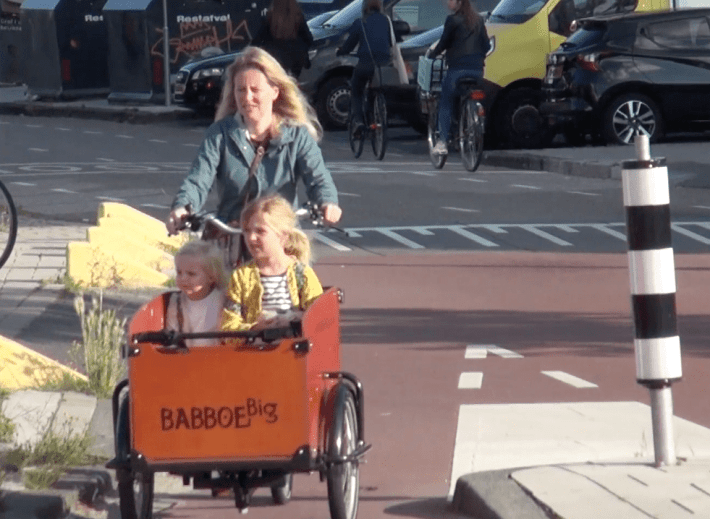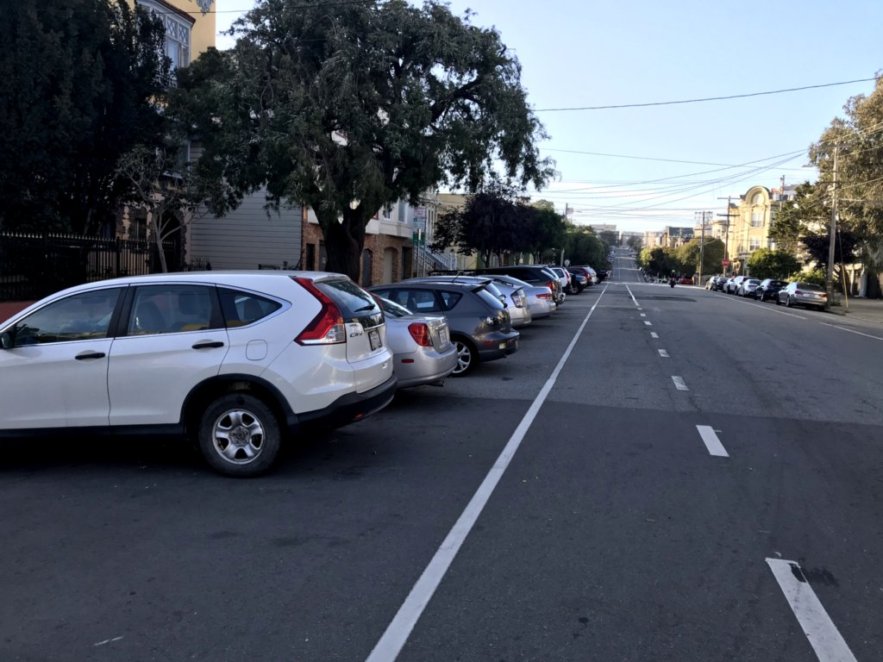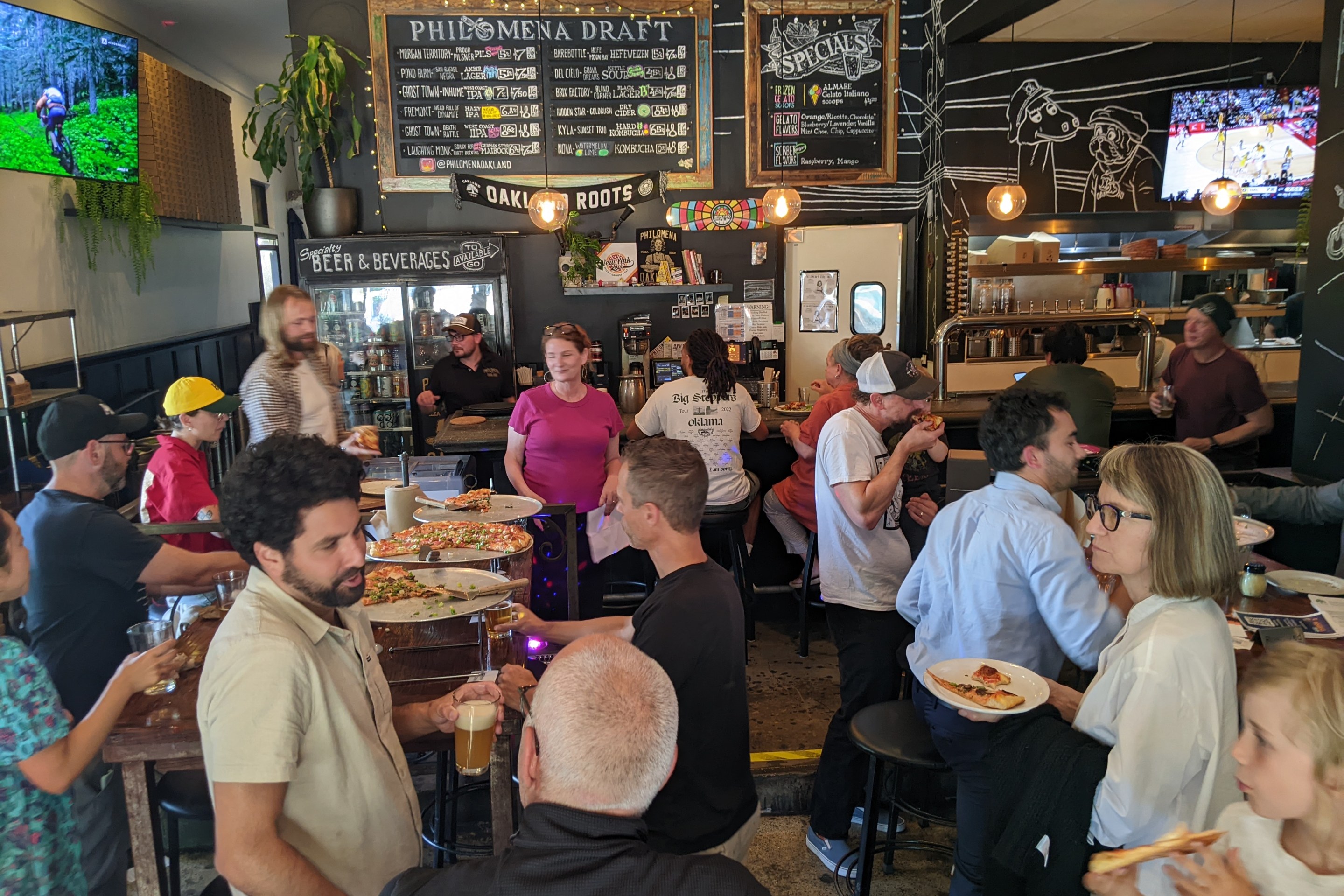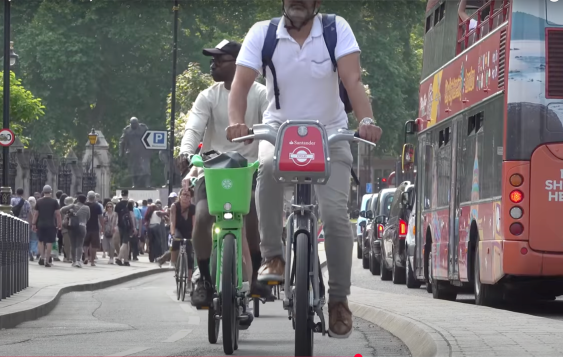There were 29 traffic deaths in SF in 2020. SFMTA has a $68 million deficit, on track to grow to $168 million next year. The climate crisis is real.
The city will never solve these problems as long as it continues to use public space to subsidize cars. SF charges only $13 per month for residential parking--or nothing at all, in areas without permit requirements. Meanwhile, a driveway in the Outer Sunset goes for $162 per month on Craigslist. If the city charged that much for residential street parking, it would bring in over $400 million a year.
Car ownership skews wealthy and white. In effect, the city is short-changing transit, which is used more by people of color, to offer a $150 monthly subsidy for drivers. Is this what we stand for, San Francisco?
What if we stopped giving away public land for one-tenth to one-thirtieth its market value? Perhaps more folks might decide that a personal automobile is not worth it and opt for Zipcar, a Muni pass, or a bicycle. We could use permit revenues to expand bus service, or to support other local priorities. And if we moved beyond costs to acknowledge the value of curb space, maybe we would even allow other uses--hyper-local playgrounds, secure bicycle parking, pop-up small businesses, or even tiny houses for students and seniors.

These ideas are gaining momentum. Recently, SPUR, Streets for People, and my organization, Urban Environmentalists, co-hosted a panel event featuring UCLA’s parking expert Professor Donald Shoup. It was followed by an article from UC Davis Law Professors Chris Elmendorf and Darien Shanske. Streetsblog has looked at this before too. The Examiner also recently asked: Is it time to end free parking in San Francisco?
Urban Environmentalists recommends the following steps:
- Lay the legal bogeyman to rest: For years the city has argued that due to Propositions 218 and 26, it would take a ballot initiative to charge more for residential parking permits. As Professors Elmendorf and Shanske explain, that’s simply incorrect. Before SFMTA meets for its February 2 budget workshop, City Attorney Dennis Herrera should issue revised guidance that frees the agency to consider price increases.
- Enforce existing parking laws: Two-hour parking limits are rarely enforced. Rampant sidewalk parking blocks pedestrian and ADA access. The city needs to set the tone that parking is a privilege with constraints, not an unbounded right. SF should photograph the license plate of every car violating parking rules and mail the owner a ticket.
- Expand permit zones to all residential areas: Only 44 percent of San Francisco households are in permit zones. Yet no matter where you live, automobiles come with externalities: asthma, greenhouse gases, crashes, and congestion that slows transit. Let’s expand permit zones to all neighborhoods.
- Expand “Pay or Permit” parking: Residential permit zones typically allow free, two-hour parking for visitors. But on blocks with new Pay or Permit regulations, there’s no free parking. Visitors pay at centralized meters, or via phone/app. In return, they can park for as long as they like. This is a win-win program and while it doesn’t impact residential permits, it’s a step towards acknowledging the value of curb space. We should expand (and enforce) Pay or Permit zones, eliminating two-hour free parking.
- Experiment with equitable pricing for street parking: There are many options, ranging from uniform-price auctions to “variable rate” models. And of course, equity includes considering the needs of low-income, elderly, and disabled drivers, as well as of contractors and nearby small businesses. Shoup recommends establishing small “parking benefit districts”; each one can experiment with different policies, and revenues can be funneled back into hyper-local neighborhood projects.
- And finally, Think beyond cars: To achieve a more just, livable, and safe society, we ultimately need to move beyond car-centric thinking. Drivers need to pay the true costs of driving.
Our event panelist Gehl Associate's Anna Muessig invited "...people to think about streets in the same way as they think about Yosemite: a glorious, special, protected space that is our public land, our shared resource. It hosts an incredibly complex ecology of public life. And if we really think about our streets that way, the curb becomes not just a unit to exchange on the market, it becomes vital to spending time together in public space.”
San Francisco has enough curb parking to cover Golden Gate Park. And like the park, it should belong to everyone, not just drivers.
***
Joanna Gubman is a volunteer co-lead of Urban Environmentalists. She lives in the Castro.






